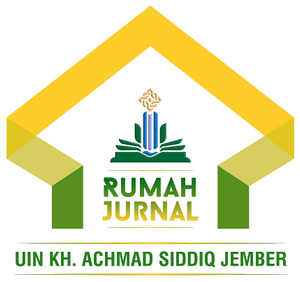Management of the Yellow Book Reading Acceleration Program through the Umdati Method in Islamic Boarding Schools
DOI:
https://doi.org/10.35719/ijibs.v2i1.60Keywords:
Yellow Book Learning Management, Umdati Method, Islamic Boarding School EducationAbstract
Learning to read the yellowIslamic classic books in pesantren often faces obstacles such as complicated Arabic grammar, texts without harakat, and traditional teaching methods that take years. This study analyzes the management of the accelerated yellowclassic book reading program using the Umdati method at Darul Hijrah Pamekasan Islamic Boarding School. Using a descriptive qualitative approach with purposive sampling, data were collected from caregivers, program managers, and santri through interviews, observation, and documentation. Analysis followed the Miles and Huberman interactive model. The findings show that the Umdati-based program effectively shortens the learning period from several years to about 12 months by optimizing three key management functions. Planning is guided by the SMART framework, which targets mastery of basic nahwu in 5 months. The Umdati method simplifies the classical nahwu material into 16 pages, with a composition of 30% theory and 70% practice. The implementation is carried out in five sessions every day using intermittent repetition to strengthen memory. Evaluation is done through formative (daily, weekly, monthly) and summative (end of program) assessments. The success of this program shows that innovation in pesantren education can be done without sacrificing traditional values and learning ethos.
References
Budiyono. Manajemen Pembelajaran Dan Prestasi Belajar Siswa. Vol. 19, 2023. https://doi.org/10.61722/jaem.v2i3.5861
Darmawani, Evia. “Metode Ekspositori Dalam Pelaksanan Bimbingan Dan Konseling Klasikal.” Jurnal Wahana Konseling 1, no. 2 (2018): 30. https://doi.org/10.31851/juang.v1i2.2098
Fitrianti, Leni. “Prinsip Kontinuitas.” Jurnal Pendidikan 10, no. 1 (2018): 89–102. http://www.journal.staihubbulwathan.id
Gaol, Nasib Tua Lumban. Teori Dan Model Manajemen Pendidikan Sebuah Kajian Fundamental. Manajemen Pendidikan, 2023. https://books.google.co.id/books?id=3ua2EAAAQBAJ
Hasan, Agus Wahid, and Danial Hilmi. “Manajemen Pelaksanaan Program Pembelajaran Bahasa Arab Di Pondok Pesantren Sunan Kalijogo Surabaya.” Tarbiyatuna: Jurnal Pendidikan Ilmiah 7, no. 1 (2022): 75–90. https://doi.org/10.55187/tarjpi.v7i1.4602
Hepni, Riayatul Husnan, and Ahmad Khuza’i Faruq. 2022. “Developing Children’s Sprituality Education”. TADRIS: Jurnal Pendidikan Islam 17 (1), 21-31. https://doi.org/10.19105/tjpi.v17i1.5900
Manajemen, Jurnal, and Pendidikan Islam. “1 , 2 , 3” 4, no. 2 (2019): 97–106. https://doi.org/10.62448/bujie.v2i2.117
Miles, M B, A M Huberman, and J Saldana. Qualitative Data Analysis. SAGE Publications, 2014. https://books.google.co.id/books?id=3CNrUbTu6CsC.
Munandar, Aris. “Meningkatkan Jaminan Kepastian Kualitas (QA).” Journal of Education Policy 7, no. 1 (2012): 1–81. https://s.id/MeningkatkanJaminanKepastianKualitas
Muryadi, Agustanico Dwi. “Model Evaluasi Program Dalam Penelitian Evaluasi.” Jurnal Ilmiah Penjas (Penelitian, Pendidikan Dan Pengajaran) 3, no. 1 (2017). https://ejournal.utp.ac.id/index.php/jip/article/view/538
Musaddad, Anwar, Suprapto Suprapto, and Abdul Quddus. “Manajemen Akselerasi Baca Kitab Kuning Melalui Pembelajaran Bahasa Arab Di Pondok Pesantren Darul Ulum Beraim Praya Tengah Lombok Tengah.” Jurnal Ilmiah Mandala Education 9, no. 1 (2023): 459–67. https://doi.org/10.58258/jime.v9i1.4632.
Nyimbili, Friday, and Leah Nyimbili. “Types of Purposive Sampling Techniques with Their Examples and Application in Qualitative Research Studies.” British Journal of Multidisciplinary and Advanced Studies 5, no. 1 (2024): 90–99. https://doi.org/10.37745/bjmas.2022.0419.
Qadrie, Syarif Ali Al. “Preventif Konflik Melalui Tradisi Sowan Di Lingkungan Pondok Pesantren Al-Mubarok Miftahul Ulum Parit Masigi Sungai Ambawang Kabupaten Kuburaya.” Jurnal Ilmiah Hospitality 11, no. 2 (2022): 1065–74. https://doi.org/https://doi.org/10.47492/jih.v11i2.2317.
Susilo, Agus Agus, and Ratna Wulansari. “Sejarah Pesantren Sebagai Lembaga Pendidikan Islam Di Indonesia.” Tamaddun: Jurnal Kebudayaan Dan Sastra Islam 20, no. 2 (2020): 83–96. http://dx.doi.org/10.19109/tamaddun.v20i2.6676
Syafarudin. "Organisasi, Kinerja, and Pendidikan Secara. “297-529-1-Sm” 6, no. 1 (2013): 150–63. http://repository.uinsu.ac.id/2843/1/Peningkatan%20Kontribusi.pdf
Syafe’i, Imam. “Pondok Pesantren: Lembaga Pendidikan Pembentukan Karakter.” Al-Tadzkiyyah: Jurnal Pendidikan Islam 8, no. 1 (2017): 61–82. https://ejournal.radenintan.ac.id/index.php/tadzkiyyah/article/view/2097
Rifqiawan, Raden Arfan. “Pembuatan Flash Card Digital Untuk Pembelajaran 80% Kosa Kata Al-Qur’an.” At-Taqaddum, 2016, 1–20. https://doi.org/10.21580/at.v8i1.1162
Sewang, Anwar. Manajemen Pendidikan. Malang: Wineka Media, 2015. https://repository.iainpare.ac.id/id/eprint/1088/
Taqiyuddin, Taqiyuddin, Supardi Supardi, and Lubna Lubna. “Evaluasi Formatif Dan Sumatif Dalam Pembelajaran Pendidikan Agama Islam.” Jurnal Ilmiah Profesi Pendidikan 9, no. 3 (2024): 1936–42. https://doi.org/10.29303/jipp.v9i3.2392.
“Undang.” Undang Undang Nomor 18 Tahun 2019 Tentang Pesantren, n.d. https://id.wikisource.org/wiki/UndangUndang_Republik_Indonesia_Nomor_18_Tahun_2019.
Widoyoko, Eko Putro. “Evaluasi Program Pembelajaran.” Yogyakarta: Pustaka Pelajar 238 (2009). https://digilib.alfithrah.ac.id/index.php?p=show_detail&id=4498
Wiwin Fachrudin Yusuf. Manajemen Pendidikan (Kajian Praktis Dalam Manajemen Lembaga Pendidikan). CV. Diva Pustaka, 2022. https://repository.yudharta.ac.id/1820/
Zaini, Mohammad. Manajemen Pembelajaran: Kajian Teoritis Dan Praktis. IAIN Jember Press, 2021. https://digilib.uinkhas.ac.id/5233/
Zaman, Badrus. “Penerapan Active Learning Dalam Pembelajaran PAI.” Jurnal As-Salam 4, no. 1 (2020): 13–27. https://doi.org/10.37249/as-salam.v4i1.148
Downloads
Published
Issue
Section
License
Copyright (c) 2025 Badrus Soleh, Astri Norisa Irfandari

This work is licensed under a Creative Commons Attribution-NonCommercial 4.0 International License.
License
1. Author’s Warranties
The author warrants that the article is original, written by stated author/s, has not been published before, contains no unlawful statements, does not infringe the rights of others, is subject to copyright that is vested exclusively in the author and free of any third party rights, and that any necessary written permissions to quote from other sources have been obtained by the author(s).
2. Miscellaneous
IJIBS will publish the article (or have it published) in the journal if its editorial process is successfully completed and IJIBS or its sublicensee has become obligated to publish it. IJIBS may conform the article to a style of punctuation, spelling, capitalization, and usage that it deems appropriate.
















 IJIBS licensed under Creative Commons Attribution-NonCommercial 4.0 International License.
IJIBS licensed under Creative Commons Attribution-NonCommercial 4.0 International License. 